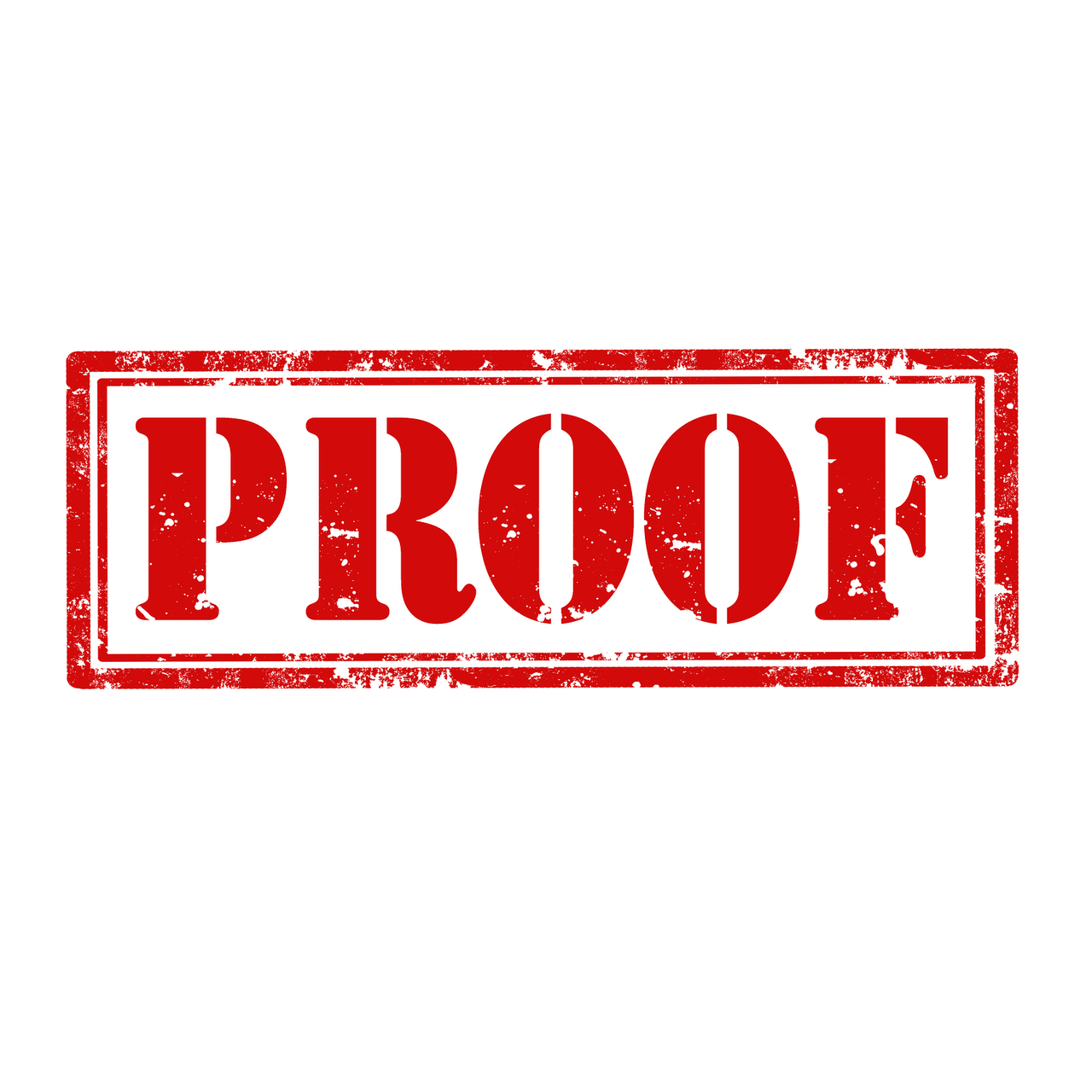Moving to a new country, like Canada, is a big step, and one of the most important things to sort out is showing you can support yourself. Many people wonder about the money they need to have when they plan to settle there. This idea of showing you have enough money is usually called "proof of funds," and it's a very real part of the immigration process for many folks. It's about giving the Canadian government a clear picture that you won't need public assistance right away as you get settled.
This financial requirement, you know, is a way for Canada to make sure newcomers can get a good start without facing immediate money worries. It's a key piece of information, a fact, that shows you are ready for this big change. The Canadian government wants to see that you have the means to cover your living costs and other expenses as you begin your new life in the country. It's a way of saying, "Yes, I have thought about this, and I am prepared financially."
So, this article will help you understand what "proof of funds Canada" actually means, who needs to show it, and how you can get your financial papers in order. We'll look at the kinds of evidence that work, and some common things to watch out for. It's really about making sure you have all your ducks in a row for a smooth entry into your Canadian journey, you know, just to be sure.
Table of Contents
- What Exactly is Proof of Funds Canada?
- Who Needs to Show This Money?
- How Much Money Do You Need to Show?
- What Counts as Acceptable Proof?
- Things to Watch Out For
- Getting Your Documents Ready
- People Also Ask About Proof of Funds Canada
What Exactly is Proof of Funds Canada?
When we talk about "proof of funds Canada," we are really talking about providing a clear demonstration of your financial ability. It's a way to show that you have enough money to support yourself and any family members who are coming with you to Canada. This financial evidence is very important for several immigration programs. It’s about presenting a fact, a piece of information, that shows your financial stability is true and exists. So, in a way, it's about making sure you can stand on your own two feet once you arrive.
The idea of "proof" here is quite simple, yet very important. It's the evidence that shows something is definitely true or definitely exists. For your Canadian application, this means showing that the money you say you have is actually there and available to you. It's a validation of your financial situation, more or less, by applying specific rules set by the Canadian government. This helps them confirm you won't be a burden on their social support systems as you get settled in your new home.
This requirement is not just a formality; it serves a real purpose. It helps to ensure that newcomers have a smoother transition and can cover their initial living expenses, housing, and other necessities without immediate financial stress. It's a way for the Canadian authorities to assess your readiness for settling into a new life. Basically, it’s about having a clear financial plan in place.
Who Needs to Show This Money?
Not everyone applying to come to Canada needs to show proof of funds. The need for this financial evidence depends a lot on the specific immigration program you are applying for. For instance, many people applying through economic immigration programs, like the Federal Skilled Worker Program under Express Entry, usually have to show that they have enough money to support themselves and their families. This is a common requirement for those aiming for permanent residency, you know, for a long-term stay.
However, there are some situations where you might not need to show this money. For example, if you are applying under the Canadian Experience Class (CEC), which is for people who have already worked in Canada, you typically don't need to provide proof of funds. Also, if you have a valid job offer from a Canadian employer, that might sometimes remove the need to show settlement funds, depending on the program. It really just depends on your specific path to Canada.
International students, on the other hand, usually do need to show they have enough money to cover their tuition fees and living expenses for their first year of study. This is a different type of financial readiness, but it still falls under the broad idea of proving you can support yourself. So, it's very important to check the specific requirements for the program you are interested in, as they can vary quite a bit.
How Much Money Do You Need to Show?
The amount of money you need to show for proof of funds Canada changes each year. It also depends on how many family members you are bringing with you. The Canadian government updates these figures regularly, usually in the spring, to account for living costs. So, it's really important to check the very latest figures from the official Immigration, Refugees and Citizenship Canada (IRCC) website for the most accurate information as of 2024. For example, a single person might need one amount, but a family of four will need a much larger sum.
These amounts are meant to cover your basic living expenses for your first few months in Canada. This includes things like rent, food, transportation, and other personal costs. It's not just about getting there, but about being able to live comfortably while you look for work and get settled. The government wants to see that you won't be in a difficult financial situation right after you arrive, which is a pretty sensible approach, you know.
For example, as of a recent update, a single applicant might need around CAD $14,685. A couple might need CAD $18,336. And for a family of four, that figure could be around CAD $26,691. These numbers are just examples and are subject to change, so you must always look up the current official figures. It’s always best to have a little more than the minimum required amount, just to be on the safe side, you know.
What Counts as Acceptable Proof?
When you are showing proof of funds Canada, the Canadian government wants to see that your money is genuinely available to you and that it can be easily accessed. They look for evidence that shows the cogency of your financial situation, meaning the strength of your evidence compels acceptance by their mind of a truth or a fact. This means you can't just write down a number; you need actual documents to back it up. So, what kinds of things count as acceptable proof? Well, it's generally liquid assets, money you can get to quickly.
Here are some of the most common and accepted forms of proof:
Bank Statements: You will need official letters from banks or other financial institutions. These letters should show all your active bank accounts, listing both checking and savings. They need to include the account numbers, the date each account was opened, and the current balance of each account. The average balance over the past six months is often important too. It’s a fact or piece of information that shows your money exists.
Investment Statements: If you have money in investment accounts, like GICs (Guaranteed Investment Certificates) or mutual funds, you can use statements from these. The key is that the money should be easily convertible to cash without a significant loss. These statements also need to show the current value of your holdings. This provides a different kind of evidence that shows something is true or valid.
Proof of Property or Other Assets: While real estate or other fixed assets generally do not count as proof of funds because they are not easily converted to cash, sometimes a valuation of these assets can be included as supporting information. However, the core requirement is liquid funds. So, you can't just show your house as proof of funds.
Certificates of Deposit (CDs): These are also usually acceptable, provided they can be redeemed without significant penalty or delay. The statement should clearly show the maturity date and the amount. This is another form of evidence that definitely exists.
Bank Drafts or Money Orders: In some cases, if you have recently converted funds into a bank draft, this can be used, but it must be accompanied by a letter from the financial institution confirming the source of the funds. This is about showing the logical steps that take you from your original money to the current form.
It's important that these funds are unencumbered, meaning no one else has a claim on them, and they are not borrowed money. The funds must be readily available to you upon your arrival in Canada. This is about showing clear ownership and access to the money, very, very clearly.
Things to Watch Out For
When preparing your proof of funds Canada, there are several common errors that people sometimes make, and avoiding these can save you a lot of trouble. One big mistake is showing borrowed money. The funds you present must be your own and not from a loan, line of credit, or any other borrowed source. The Canadian government is very strict about this; they want to see your actual, available money, not something you owe back. This is a fact that needs to be true, you know.
Another common issue is not having the funds available for the required period. For many programs, you need to show that you have had the funds available for a certain amount of time, often six months, before you apply. Suddenly depositing a large sum of money just before applying can raise questions and may not be accepted as valid proof. This is about the degree of evidence which convinces the mind of any truth or fact and produces acceptance.
Also, make sure all your documents are current and complete. Outdated bank statements or incomplete information can cause delays or even lead to your application being refused. All foreign currency amounts must be converted to Canadian dollars at the current exchange rate, and this conversion should be clearly indicated. It’s also very important to get official letters from your financial institutions. Sometimes, just a printout from online banking isn't enough; they want official, signed letters. This helps ensure the information is definitely true and definitely exists.
Getting Your Documents Ready
Preparing your proof of funds Canada documents requires careful attention to detail. The first step is to gather all the necessary statements from your bank accounts, investment portfolios, and any other financial sources. Make sure these statements cover the required period, typically the last six months, and clearly show the account holder's name, account numbers, and balances. This is the foundation of your financial evidence, basically.
Once you have these statements, you'll need to obtain official letters from your financial institutions. These letters should be on the bank's letterhead, stamped, and signed by an authorized bank official. They need to confirm the details of your accounts, including the date they were opened, the current balance, and the average balance over the past half-year. This process helps ensure that the evidence you are providing is verifiable and trustworthy. You can find more detailed requirements on the official IRCC website.
For any documents not in English or French, you will need to get certified translations. This is a crucial step to ensure that the Canadian authorities can fully understand your financial situation. Furthermore, sometimes you might need to get these documents notarized. As the text mentions, "Get notarize℠ for your customers." Notarization adds an extra layer of official verification, confirming the authenticity of the signatures and documents. It's an effort, process, or operation designed to establish or discover a fact or truth, which helps your application move along smoothly. Learn more about document preparation on our site, and link to this page for more immigration tips.
People Also Ask About Proof of Funds Canada
What counts as proof of funds for Canada?
Proof of funds for Canada typically includes official letters from banks showing your current and average balances over the past six months in checking or savings accounts. It can also include statements from easily accessible investments like Guaranteed Investment Certificates (GICs) or mutual funds. The main thing is that the money must be yours, not borrowed, and readily available to you upon arrival in Canada. This is about showing a fact or piece of information that shows something exists or is true.
How much money do I need to show for Canada immigration?
The exact amount of money you need to show for Canada immigration changes each year and depends on the size of your family. The Canadian government updates these figures annually to reflect living costs. You must check the most current figures on the official Immigration, Refugees and Citizenship Canada (IRCC) website for the year you are applying. It's always a good idea to have a bit more than the minimum required amount, just in case, you know.
Can I borrow money for proof of funds Canada?
No, you cannot borrow money for proof of funds Canada. The funds you present must be your own, unencumbered, and readily available. This means money from loans, lines of credit, or any other borrowed sources will not be accepted. The Canadian government wants to see evidence that shows the money is definitely true and definitely exists as your own personal asset, not something you have to pay back. This is a very important rule to remember, very important.



